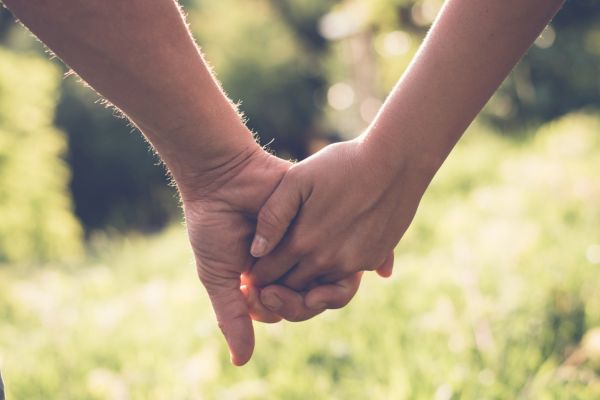All close relationships have their ups and downs. There are so many pressures on our lives and on our time – from family to finances, from children to communication – that many couples can struggle and go through difficult times.
What is couples or relationship counselling?
“Feeling secure, happy and connected in our couple relationship is crucial to our emotional wellbeing,” says Arabella Russell.
“When couples come to counselling, these comforting feelings have often been replaced with pain, conflict and a sense of isolation. Couples therapy provides a safe and supportive space to think about and explore the roots of this disconnection.
“The aim is not to point the finger and blame, but to help both parties reconnect emotionally – to listen to their partner differently, learn to communicate more effectively and create, if appropriate, a happier and healthier relationship going forward.”
Who is couples or relationship counselling for?
Vasia Toxavidi says this therapy is for those who want to make a difference in their relationship and within themselves.
“It can offer a couple, or an individual, space to explore their feelings and reflect on their relationship and interaction patterns,” she says. “It can help you resolve past relationship trauma and loss, and understand why you behave as you do in intimate relationships.”
"It’s for all couples of all ages and at all stages of their relationship not just for those in crisis," adds Arabella. “We service our cars on a regular basis, why not give our relationships a regular fine tune too?”
What problems can couples or relationship counselling help with?
Couples bring a wide range of issues to counselling, from lack of intimacy and communication breakdown to trust, jealousy and infidelity issues. Family conflicts and difficult life transitions can cause problems within a relationship, as can work-related stress or financial problems.
Vasia says some couples have found the intensity of the COVID-19 lockdowns has created issues.
“Working from home or having limited contact with friends and family has affected our sense of individuality which some couples have found difficult to deal with,” she says. “It's forced people to reconnect with their reality and question how fulfilling their relationships are.”
How does couples or relationship counselling work?
Counselling can provide a safe and supportive space to explore your difficulties and help you find a way through.
The way we behave in adult relationships can have roots in our own histories. An important aspect of couples therapy is highlighting the impact of the past on both individuals and working to disentangle it from the present.
“We don’t know we’re doing it, we just know that when our partner doesn’t seem to listen to us or take our views seriously, we can feel an intense rage and sadness that seems to outweigh the current situation,” Arabella says.
“A look into the past might reveal that feeling unheard and unimportant is a familiar pattern from our childhood. Making this connection doesn't make our partner’s behaviour any more acceptable, but it does start to make sense of our reaction."
Vasia explains how counselling can help you identify and address negative behaviour and communication issues.
“A therapist can support you to understand how to communicate differently, to see each other again through different lenses,” she says. “We can give you tools to better express yourself and your needs, place boundaries and create healthier relationships.”
What couples or relationship counselling can't do
But counselling isn’t a magic bullet that will solve a couple’s relationship problems.
“Sometimes, people enter counselling expecting it to fix a relationship, bring back the passion or make their partner change," says Vasia.
“Counselling can help you understand yourself and others better, and offer tools and guidance, but it can’t change a person or a relationship if people aren’t ready to put in the effort and commitment.”
Arabella adds: “The aim of couples therapy is to help create a happy, healthy and secure relationship, if that's what both individuals want. A therapist can guide and help you, but it’s the couple who must do the hard work."
For some couples, the safest and healthiest option may be for them to separate. And couples counselling can be an important part of the process.
“It won't take away the pain and grief of the relationship ending, but it can provide a space to think about why things haven’t worked out and to consider the most constructive ways of moving forward," says Arabella. "And that's particularly important when there are children involved.”
Working with a couples counsellor
Kathleen Daymond from our Get help with counselling concerns service says it’s vital to find a therapist with specific couples’ experience and training.
“Working with a couple is very different to working with one individual,” she says. “The therapist must be able to work with both of you as individuals and with the dynamics of your relationship with each other. You must both feel comfortable with your therapist, so speak to two or three before you decide and don’t be afraid to ask questions.”
Contracting and confidentiality are particularly important in couples therapy.
“You need to agree what happens if the therapist wants to have individual sessions with either of you,” says Kathleen. “This might be useful to explore something within the relationship, or it could be a personal issue for one of you, such as a bereavement or business problems, that is affecting the relationship. Will what you discuss remain confidential between you and the therapist or might they bring it into the joint sessions?
“Often this can be where the counselling can go awry, if one partner feels the counsellor has revealed something they thought was discussed in confidence, or if you feel you’re being talked about behind your back.”
You should also discuss what might happen to your records. For example, one partner cannot have access to their joint notes, or agree to release them to third parties such as a GP, without the consent of the other.
If either of you have any concerns about what is happening within your therapy, discuss them with your counsellor as soon as you can. “Your counsellor must remain impartial and not give advice, take sides or point you in a particular direction,” says Kathleen. “It’s their role to help you see your relationship more clearly and find the best way forwards.”
Find out more about our Get help with counselling concerns service.
If you have any comments or would like to share your story, please get in touch with us.
More about couples...
Find out more...

Relationships
What is relationship counselling? How can therapy improve your relationships? BACP member Cate Campbell explains how counselling can help.

What is counselling?
Find out how counselling works, what therapists do and what happens in a therapy session.

Therapist Directory
How to use our online therapist directory to search for a counsellor or psychotherapist by location, services or specialisms
